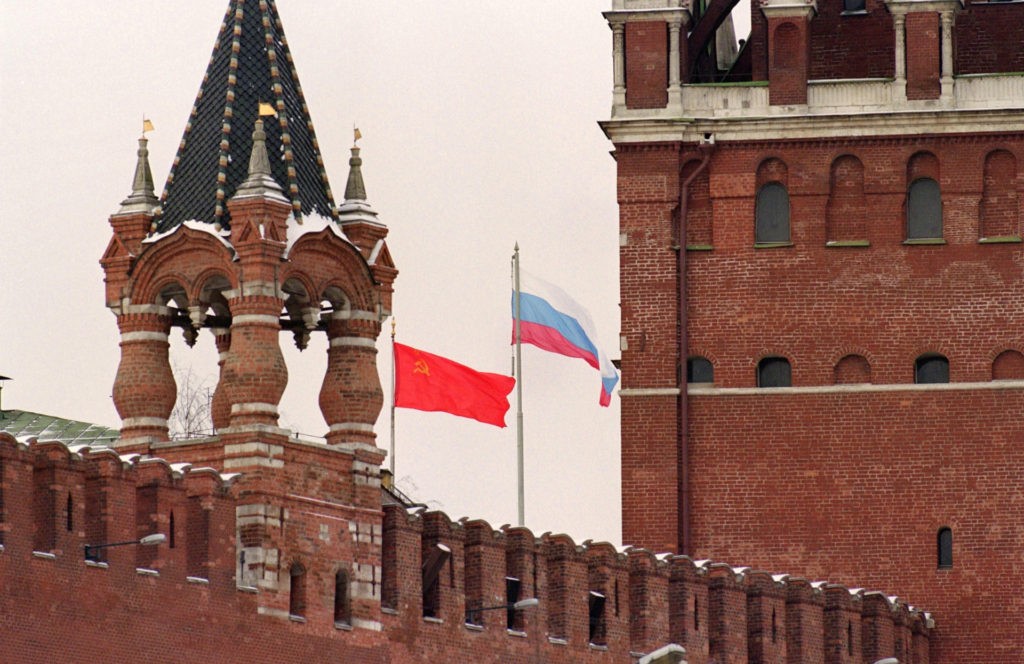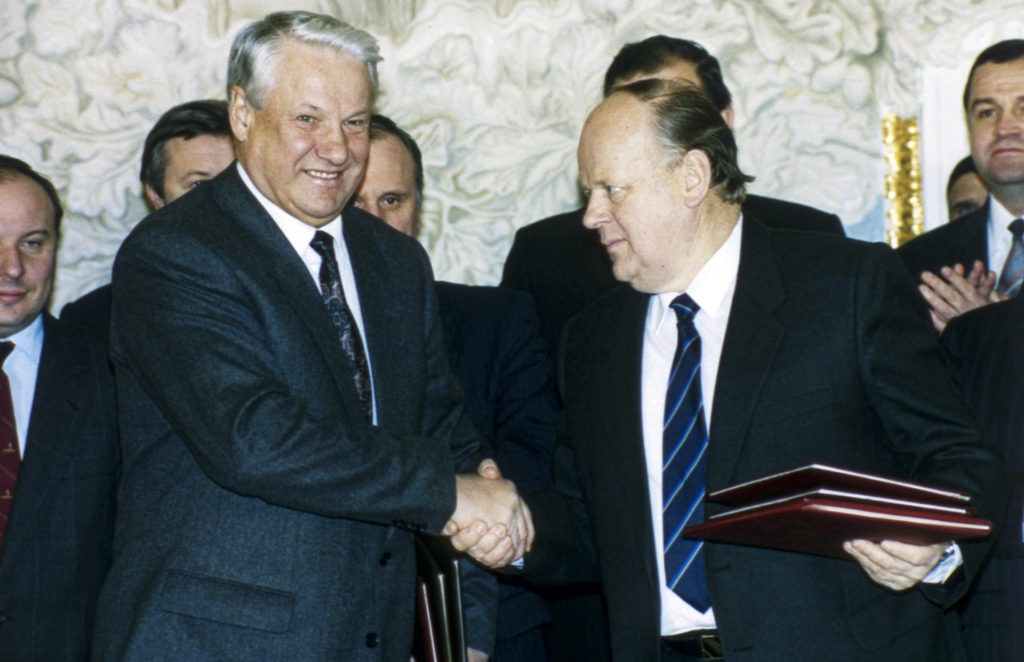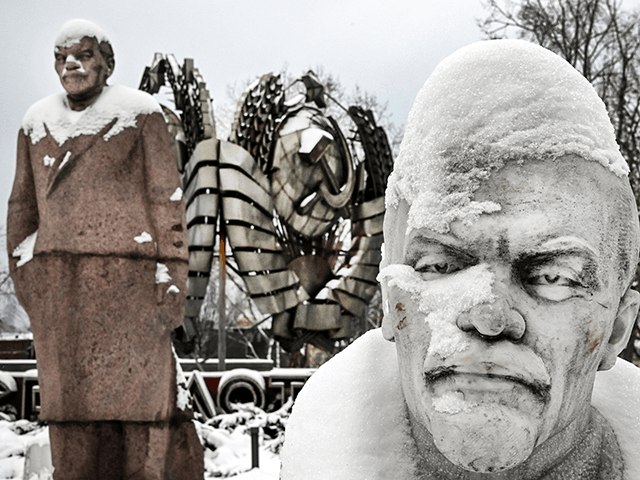Lawmakers from Russia’s nationalist Liberal Democratic Party (LDPR) on Monday submitted a bill that would declare the fall of the Soviet Union in 1991 to be “the greatest geopolitical catastrophe of the 20th Century.”
The proposal was submitted just a few days before the 30th anniversary of the event seen as the formal demise of the Soviet empire: December 25, 1991, was the day the Soviet flag was taken down from the Kremlin.

The Soviet (L) and Russian flags fly over the Kremlin, 18 December 1991, between the Spassky Gate towers, in Moscow. The Soviet flags will be taken down 31 December 1991, for the last time to be replaced by the Russian flags, marking the end of the Soviet Union. (Photo by ALAIN-PIERRE HOVASSE/AFP via Getty Images)
According to the LDPR, the collapse of the USSR “led to disintegration in various areas of society,” the “exacerbation of the economic and political crisis,” and “the emergence of conflicts on national grounds.”
The resolution submitted to the lower house of the Russian parliament on Monday portrayed the death of the Soviet Union as not just a “catastrophe,” but a crime perpetrated by Boris Yeltsin, chairman of the Russian parliament at the time, and the leaders of Ukraine and Belarus.

Russia’s President Boris Yeltsin, left, and Belarus’ leader Stanislav Shushkevich shake hands in Minsk, Belarus, on Dec. 7, 1991. (AP Photo/Alexander Zemlianichenko)
The three supposedly committed an “unauthorized” act of “deliberate” malice when they agreed to dissolve the USSR as a “subject of international and geopolitical reality” by granting independence to Ukraine and Belarus, an exit that soon became a stampede of fleeing Soviet satellites.
The agreement in question was actually signed by then-President Mikhail Gorbachev, not Yeltsin, who was most famous at the time for jumping on top of a tank outside the Parliament building and rallying a crowd of anti-Soviet demonstrators. Either the LDPR got its history wrong, it was more interested in beating up Yeltsin than Gorbachev, or the Moscow Times misquoted the LDPR resolution.
The resolution meshes neatly with the rhetoric of current Russian President Vladimir Putin, who spent the past few months moping about the “tragedy” of the Soviet Union’s collapse and the damage to Russian sovereignty caused by the independence of Ukraine and the other satellite states.
“We turned into a completely different country, and what had been built up over a thousand years was largely lost,” Putin lamented, even as he massed 100,000 troops on the Ukrainian border and gave the impression he might be interested in rebuilding the USSR by force.
The Russian Communist Party complained on Monday that LDPR was muscling in on its act and trying to co-opt the “left agenda” by passing a symbolic resolution that says what the Communists have always believed.
The Communists also grumbled that LDPR’s resolution is purely theatrical, unadorned by any specific policies or suggestions about how to reverse the “geopolitical catastrophe” of 1991.
Russian legislators are not the only ones exploiting Soviet nostalgia as the 30th anniversary of the USSR’s collapse approaches.
On Monday, the Russian national ice hockey team provoked outrage across northern Europe by showing up for a game against Finland wearing throwback Soviet Union jerseys.
Alexander Stubb, the prime minister of Finland, said he was “surprised and disappointed” by the Russian jerseys, which were emblazoned with the letters “CCCP,” the Cyrillic alphabet version of USSR.
“That letter combination and the regime that stood behind it symbolizes authoritarian imperialism and killed millions of innocent people in the process,” said Stubb.
Stubb said the CCCP jerseys were an “offensive gesture that does not belong to sport, or anywhere else,” especially since “countries in the ice hockey family were brutally annexed by those letters.”
Russia went on to lose the game to Finland, 3-2.

COMMENTS
Please let us know if you're having issues with commenting.